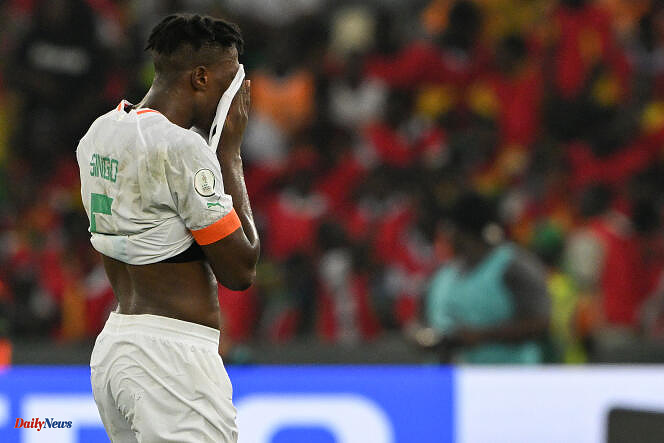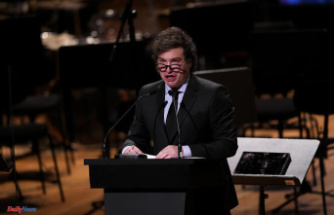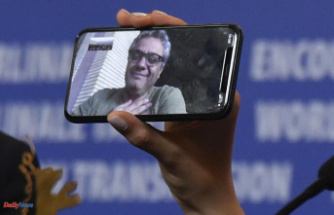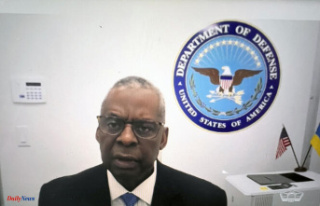Monday January 22, after the 4-0 defeat of Côte d'Ivoire against Equatorial Guinea, Samuel Eto'o greets without smiling the Ivorian students of the boarding school of the technical high school of Bouaké, where the Cameroonian selection trains, before to sharply rebuke a journalist who was walking along the training ground of the Indomitable Lions, then in the middle of a closed session. Cameroon, very poorly placed with a small point in this 2024 African Cup of Nations (CAN), is playing for its survival this January 23 against Gambia.
Before the match, the president of the Cameroonian Football Federation “is very tense,” reports the federation president of another national team based in Bouaké. A victory against Gambia would qualify Cameroon for the round of 16. A 1-0 defeat or a draw would be synonymous with elimination but also qualification for the Ivorian Elephants, who would find themselves among the four best third-placed groups.
It would be a double punishment for the Indomitable Lions as the rivalry between the two countries is so strong. A “complicit rivalry”, describes the Ivorian writer and lecturer in philosophy in Abidjan Josué Guébo, symbolized for several years by the expression “in-laws” used by the two countries to talk about the rival. It is said that the expression comes from the Eto'o couple because the former player is married to an Ivorian.
In terms of football, the destiny of the two countries seems linked for forty years and the first CAN organized on Ivorian soil in 1984. At the time, there were only eight teams competing. That year, the Ivorians were eliminated in the first round, beaten in particular by the Cameroonians of star Roger Milla (2-0), who won their first continental title.
The two greatest African players
“The evening of their victory, it was as if the Cameroonians had taken Abidjan: they were dancing and singing, they were laughing nicely,” remembers the former Ivorian player, now singer, Gadji Celi. For us, it was too much, we had to react. We had to compete with them, show them that Ivory Coast mattered in Africa. »
Ivory Coast will have to wait until CAN 1992 to take its real revenge, by winning its first cup, after eliminating Cameroon in the semi-final. “It was the best match of the tournament. Beating Cameroon on penalties, beating goalkeeper Joseph-Antoine Bell… We got them! “, boasts Alain Gouaméné, the guardian of the victorious Ivorian epic.
The competition between several players, notably those considered by many to be the two greatest African players of all time – Cameroonian Samuel Eto'o and Ivorian Didier Drogba – prolongs the rivalry between the two nations. The two stars have in common that they are adored on the continent. Several times winners of the African Player of the Year award, they are regularly ranked in the top 30 of the Ballon d’Or – rewarding the best player in the world over a season – in the 2000s.
Cameroonians can still boast a much greater track record. They have won the CAN five times and the Olympic Games once, in 2000. “OK, they have won more CANs than us, but we will make up for it! They organized the CAN in 2022 in a good way? We will do better,” assures Gadji Celi.
Mockery and teasing
The 2022 competition was a perfect illustration of the teasing relations between the two countries. While the competition takes place in the midst of the Covid-19 epidemic, Internet users are questioning the tests carried out by the Cameroonian team. Before their round of 16 against the Comoros, the Lions all tested negative, while within the opposing team, twelve players, positive, could not enter the field.
In the bushes of Abidjan where we watch the match, the Ivorians wholeheartedly support the Comorians, who will ultimately lose 2 goals to 1. The Cameroonian supporters will take revenge two days later by singing the Egyptian anthem in the Japoma stadium in Douala , during the round of 16 between the Pharaohs and the Elephants (Egypt won on penalties). In Ivory Coast and Cameroon, the good-natured teasing sometimes degenerated: jerseys and flags of the two countries were then trampled and burned by the supporters.
This year again, for CAN 2024, the mockery is rife on social networks after each match of Cameroon and Ivory Coast. “But deep down, the defeat of Ivory Coast hurts me,” confides David Eyengue, a Cameroonian journalist who covers the CAN. If the Elephants are eliminated, it will spoil the CAN, there will be no more atmosphere. »
This rivalry goes beyond the sporting sphere. The two countries, comparable in terms of their population – around 27 million inhabitants each – like to compare themselves in the political and economic fields: one is considered the “locomotive” of West Africa, while the second is the leading economic power in the Central African Economic and Monetary Community (Cemac). But if until the beginning of the 2000s, the GDP of the two countries was comparable, Ivory Coast has largely taken the lead in recent years thanks to strong annual growth.
A “joking relationship”
If there is one thing that Ivorians and Cameroonians agree on, it is that constant teasing is “never mean”. There is even a “joking relationship” between the two peoples, according to researcher Josué Guébo, as exists between communities in the same country. An “apparent antagonism, a mutual admiration, which in fact hides a deep complicity,” he continues. It is a twin country, with the same sub-regional leadership, the same linguistic multiplicity, the same humor. » The researcher goes even further, estimating that the two countries also have a common nationalist fiber. “We saw it during the Ivorian crisis: the fiercest support for the Ivorian nationalist cause came from Cameroon,” he underlines.
On a cultural level, there have been numerous exchanges between the two countries for years. Many singers and music groups from both countries have mocked or glorified through songs. While zouglou and coupé-décalé are Ivorian musical styles widely listened to in Cameroon, the Ivorians have welcomed many artists on their soil, like the jazzman Manu Dibango. The famous Cameroonian saxophonist was in fact the first director of the Ivorian Radio-Television (RTI) orchestra, in 1976. “We are under the spell of Cameroonian intellectual domination,” continues Josué Guébo. They have great writers and great philosophers, which we do not have... We may today have an economic lead but, from the point of view of thought, they are ahead of the Ivorians. » Everyone has their strengths.












